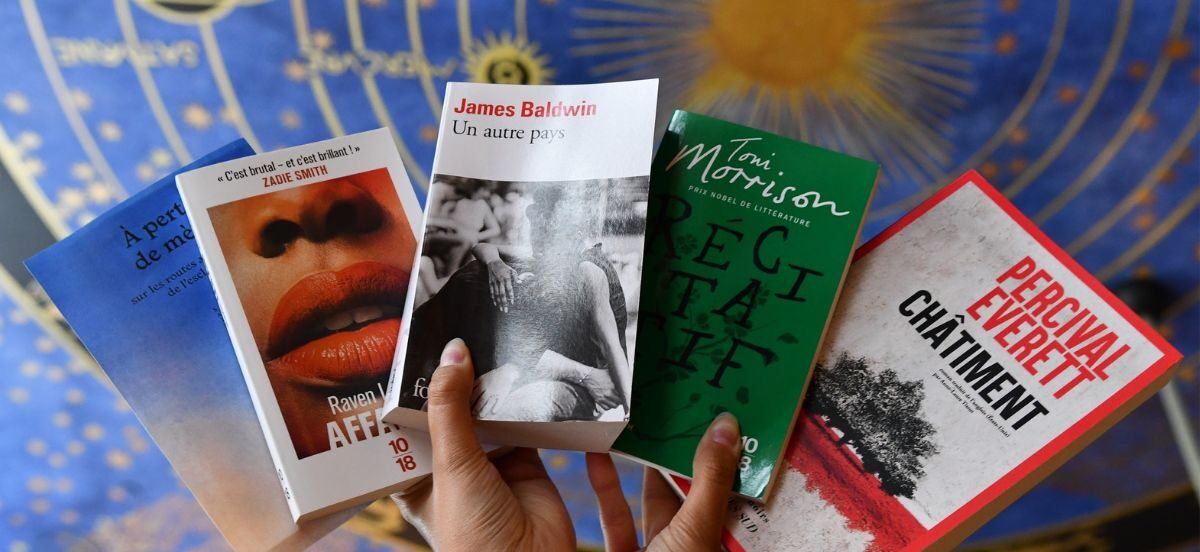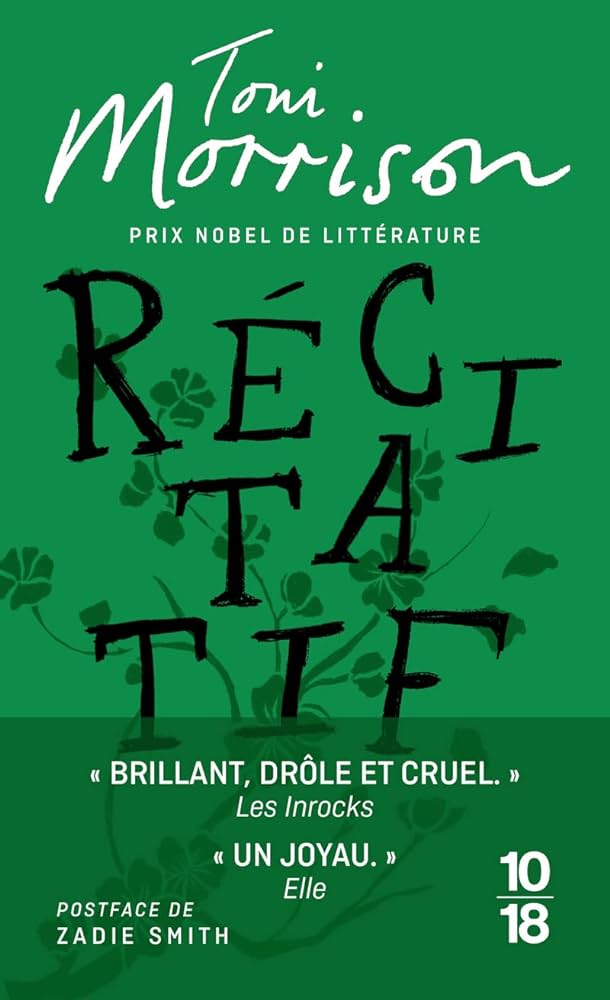Celebrate Juneteenth with These Masterful Fictions Translated into French

In 2021, President Joe Biden declared June 19 a federal holiday. It celebrates the day (June 19, 1865) when some 2,000 Union troops arrived in Galveston Bay, Texas, and announced that the more than 250,000 enslaved African Americans in the state, were free by executive decree.
As we celebrate their freedom some 159 years later, we put together a selection of great works of fiction that tackle the poisonous legacy of slavery head one.
Reading List
A series of brutal murders troubles the quiet life of Money, a small town in Mississippi —tragically known as the site where events leading to the 1955 lynching of 14-year-old Emmett Til took place. What is striking about these crime scenes is that the victims are all white, with the exception of one black dead body, uncannily resembling Emmett Till, which seems to crash every scene, before vanishing until the next murder.
When a pair of black detectives from the MBI (Mississippi Bureau of Investigation) is sent to investigate, they are met with expected resistance from the local sheriff, his deputy, the coroner, and a string of racist White townsfolk.
Our detectives suspect that these are killings of retribution, but soon discover that eerily similar murders are taking place all over the country. Something truly strange is afoot. As the bodies pile up, the MBI detectives seek answers from a local root doctor who has been documenting every lynching in the country for years, uncovering a history that refuses to be buried.
Though none of Everett’s novels resemble one another, there’s an element that makes them recognizable in between a thousand: it’s his narrative voice: deep, warm, with a genre-defying blend of absurd comedy, anger, vulnerability, and incommensurable power. The Trees is no exception; readers are immediately drawn to Everett’s upfront, honest prose, sustained by pitiless dark humor. In this bold, provocative book, Everett takes direct aim at racism and police violence, and does so in a fast-paced style that ensures the reader can’t look away.
Châtiment, a novel by Percival Everett, trans by Anne-Laure Tissut, Actes Sud Noir.
Click here to purchase this book with us.
“My mother danced all night and Roberta’s was sick. That’s why we were taken to St. Bonny’s. People want to put their arms around you when you tell them you were in a shelter, but it really wasn’t bad.”
The characters in question are Twyla and Roberta, two poor girls, eight years old and wards of the state, who spend four months together in St. Bonaventure shelter. The very first thing we learn about them, from Twyla, is this: “My mother danced all night and Roberta’s was sick.” A little later, they were placed together, in Room 406, “stuck in a strange place with a girl from a whole other race.” What we never learn definitively—no matter how closely we read—is which of these girls is black and which white. We will assume, we can insist, but we can’t be sure. And this despite the fact that we get to see them grow up, becoming adults who occasionally run into each other. We eavesdrop when they speak, examine their clothes, hear of their husbands, their jobs, their children, their lives. . . .
The crucial detail is withheld. A puzzle of a story, then—a game. Only, Toni Morrison does not play. When she called Recitatif an “experiment,” she meant it. The subject of the experiment is the reader. Zadie Smith
Récitatif, a short story by Toni Morrisson, trans by Christine Laferrière, Christian Bourgois
Click here to purchase this book with us.
Click here to purchase this book with us.
Edie is stumbling her way through her twenties—sharing a subpar apartment in Bushwick, clocking in and out of her admin job, making a series of inappropriate sexual choices. She is also haltingly, fitfully giving heat and air to the art that simmers inside her. And then she meets Eric, a digital archivist with a family in New Jersey, including an autopsist wife who has agreed to an open marriage—with rules.
As if navigating the constantly shifting landscapes of contemporary sexual manners and racial politics wasn’t hard enough, Edie finds herself unemployed and invited into Eric’s home—though not by Eric. She becomes a hesitant ally to his wife and a de facto role model to his adopted daughter. Edie may be the only Black woman young Akila knows.
Irresistibly unruly and strikingly beautiful, razor-sharp and slyly comic, sexually charged and utterly absorbing, Raven Leilani’s Luster is a portrait of a young woman trying to make sense of her life—her hunger, her anger—in a tumultuous era. It is also a haunting, aching description of how hard it is to believe in your own talent, and the unexpected influences that bring us into ourselves along the way.
Affamée, a novel by Raven Leilani, trans. by Nathalie Bru, 10/18
Click here to purchase this book with us
Rufus Scott simply couldn’t keep on living in the cruel and implacable world of white people, humiliated, abandoned by all, crushed by the weight of an inhuman city.
One cold November night, he sank forever into the icy waters of the river. This tragedy is the starting point for a moving, violent, and passionate work whose characters, in search of themselves and happiness, desperately try to break down the barriers of racial segregation and bourgeois conventions.
In this unforgettable book, James Baldwin once again asserts himself as the most brilliant and eloquent spokesman for the black minority in the United States.
Un autre pays, by James Baldwin, trans by Jean Autret
Click here to purchase this book with us
In Lose Your Mother, Saidiya Hartman traces the history of the Atlantic slave trade by recounting a journey she took along a slave route in Ghana. Following the trail of captives from the hinterland to the Atlantic coast, she reckons with the blank slate of her own genealogy and vividly dramatizes the effects of slavery on three centuries of African and African American history.
The slave, Hartman observes, is a stranger—torn from family, home, and country. To lose your mother is to be severed from your kin, to forget your past, and to inhabit the world as an outsider. There are no known survivors of Hartman’s lineage, no relatives in Ghana whom she came hoping to find. She is a stranger in search of strangers, and this fact leads her into intimate engagements with the people she encounters along the way and with figures from the past whose lives were shattered and transformed by the slave trade. Written in prose that is fresh, insightful, and deeply affecting, Lose Your Mother is a “landmark text” (Robin D. G. Kelley, author of Freedom Dreams).
A perte de mère, Translated from the English (USA) by Maboula Soumahoro (Lose Your Mother. A Journey Along The Atlantic Slave Route, Farrar, Straus and Giroux, 2007), with an essay Venus in Two Acts, translated by Émilie Notéris.







